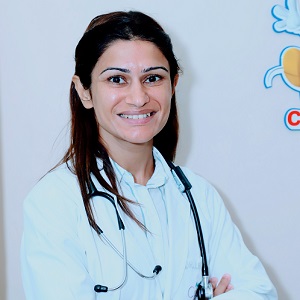Pediatric Endocrinology is a wide department with specialists to treat ailments associated with hormonal imbalances in children.
Endocrine System and Pediatric Endocrinology
The endocrine system is one of the most important systems in the human body. Hormones are biochemicals that determine normal growth, metabolism, sleep, heart rate, temperature and functioning. The hypothalamus in the brain, the pituitary gland, the thyroid gland, the ovaries/testes, the pancreas, the adrenal gland, and the thymus gland work together in secreting hormones into the bloodstream. These hormones travel through the blood, bind to respective receptors on the target organ and bring about effects like the release of hormones, maturation of eggs/sperm, change in temperature, response to fight/flight, metabolism, etc.
When there is less/more production of any of these hormones or when there is a miscommunication between the glands/organs and hormones, they result in anomalies. In most children, there is optimum functioning of glands and secretion of hormones. But, in some children, due to various reasons, there is a mishap in the endocrine system. Pediatric Endocrinologists are specialists who focus on treating the defects in the endocrine system of children.
Types of Endocrine Disorders Found in Children:
- Development/growth problems – either too tall (gigantism) or too short (dwarfism)
- Attaining puberty at a very young age (earlier than 10 or 11 years of age)
- Hypothyroid or hyperthyroid
- Swollen thyroid gland (goitre)
- Increased or decreased activity of the pituitary gland resulting in developmental issues
- Increased or decreased activity of the adrenal gland resulting in stress (when he/she has to be calm) and absence of response to fight/flight
- The presence of both genital organs
- Dysfunction of the ovaries/testes
- Diabetes
- Hypoglycemia
- Overweight/Obesity
These are some of the hormone-related health effects that are found in children that can be brought under control with professional medical assistance. However, it depends on the severity of the hormonal imbalance and how your child responds to treatment. So, it is essential to note the symptoms (mentioned above) that your child expresses to give him/her the right treatment at the right time.
Causes of Endocrine Disorders in Children:
There are different causes of endocrine disorders, and they vary from child to child. For instance, growth defects (mostly related to the pituitary gland) can be due to high-risk pregnancy or chromosomal abnormalities (e.g. Down’s syndrome), and disorders related to the thyroid gland and diabetes may be genetic (in most cases). The exact cause is often hard to identify.
When to See the Doctor?
Treating any disorder as early as possible increases the chance of a successful outcome. So if you start observing:
- Changes in appetite
- Retarded growth, speech, etc.
- Slowed digestion
- Increased response to actions
- Changes in the behaviour
Risk Factors for Endocrine Disorders:
- Family history
- Gestational diabetes/hypertension
- Quality of eggs and sperms
- IVF
Possible Complications of Pediatric Endocrine Disorders:
- Retarded growth
- Subfertility
- Self-esteem issues
- Anxiety, depression
- Slowed metabolism
- Obesity
- Unsteady heart rate and temperature
- Reduced immunity
- Metabolic disorders like diabetes
Treatment for Pediatric Endocrine Disorders:
The treatment for your child’s endocrine disorder depends on the condition. Some disorders can be treated through medicines; some require surgical intervention, while some are difficult to treat. After assessing your child’s health, your doctor will suggest treatment plans.
Request an appointment at Apollo Cradle, Amritsar - Abadi Court Road. Call 1860-500-4424 to book an appointment.
You can look out for signs like: 1. Slow metabolism 2. Lack of growth or development 3. Early puberty 4. Swollen thyroid gland 5. Increased or decreased hunger Consult with your doctor to know what is happening with your child.
No, endocrine disorders are not fatal. They can be corrected with medicines or surgery. Visit your doctor and know the facts today.
A pediatric endocrinologist specializes in analyzing hormonal imbalances in children and teens.
Our Doctors
Treatments
- Anaesthesia & Pain Management
- General Pediatrics
- Growth Chart
- Newborn Screening Test
- Pediatric Allergy
- Pediatric Dermatology
- Pediatric Endocrinology
- Pediatric Nutrition
- Pediatric Orthopedics
- Pediatric Psychology
- Pediatric Surgery & Urology
- ROP Screening Tests
- Stem Cell Banking
- Vaccination/Immunisation Schedule

 94% Patient Satisfaction Score
94% Patient Satisfaction Score


